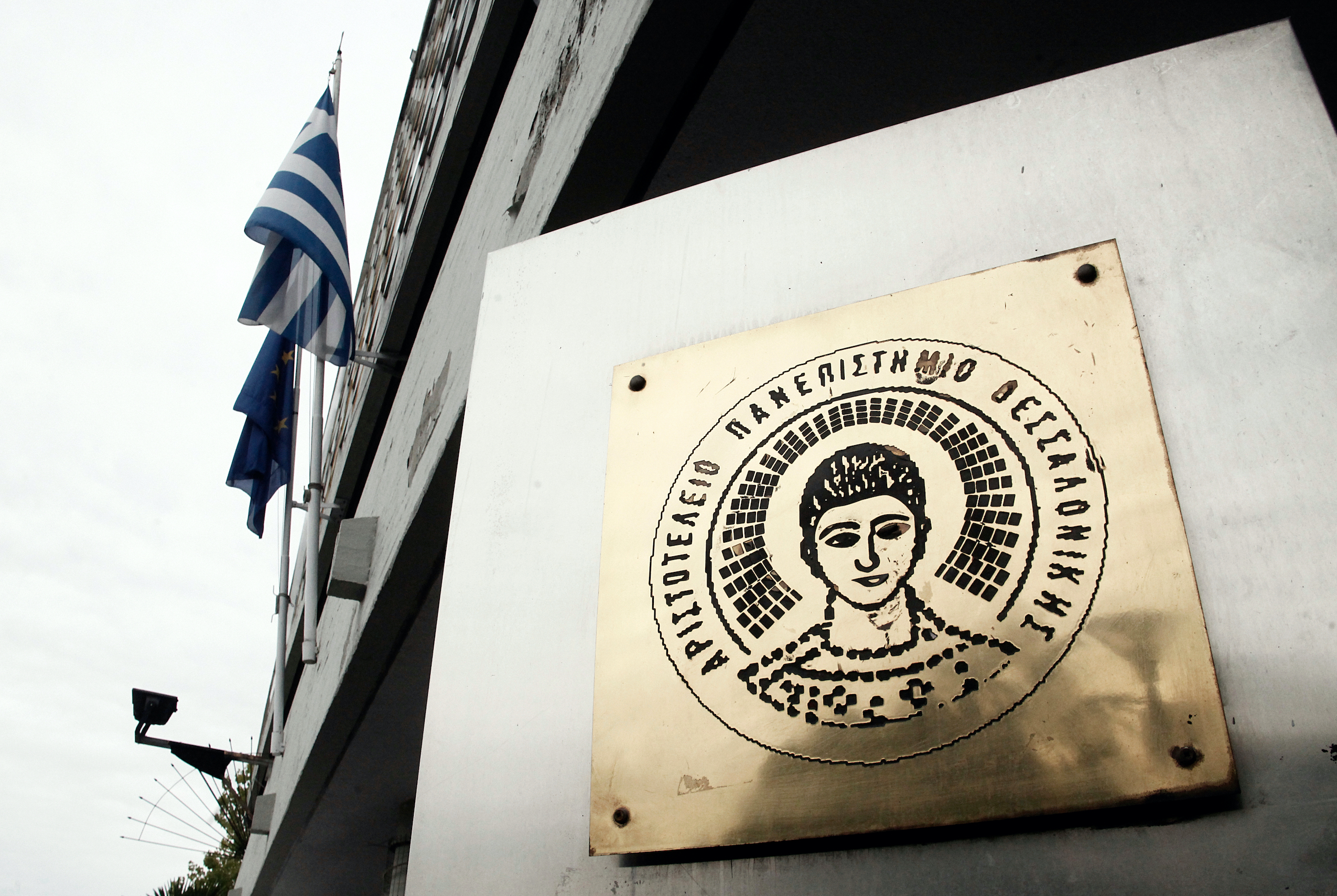In order to try to become the best possible you – that is, to live well, to flourish and, we hope, to achieve eudaimonia – you need to make an awful lot of decisions. Aristotle puts decision-making at the very heart of the Nicomachean Ethics for many chapters on how you actually go about deliberating and choose one alternative over another. It’s extraordinarily practical help. It’s like a handbook of “top tips” for helping you to make the best possible decision in any particular circumstance. It’s also the point at which the individual and the individual’s happiness come to meet community happiness, because we don’t just deliberate as individuals about how to bring up our children, whom to marry, what subject to study or what job to apply for. We deliberate collectively, especially in a democracy on whom to elect to parliament in order to make laws and implement them on our behalf.
Deliberating collectively in Aristotle's time and in our own
Professor of Classics
- Deep, long-term happiness, according to Aristotle, comes from making good individual and collective decisions. Democracy, when done correctly, can help facilitate societal well-being.
- Good decisions result from doing three things: verifying all of the information, considering the precedents and calibrating likely outcomes. In essence, this means using common sense.
- Though Aristotle had toxic views tied to his time, his approach of continuously revising fundamental principles and assumptions when presented with new information might have led him to different conclusions in our time.
Deliberating collectively

Photo by Lincoln Beddoe
Democracy is the best
It’s very interesting to me that Aristotle, although from northern Greece and living at a time when Philip II of Macedon, and then his son, Alexander the Great, were running enormous, tyrannical, autocratic, despotic monarchies, always preferred to live in Athens. Even though he was a resident alien, he actually liked living in the democracy, and in Politics he describes all the different kinds of constitutions: oligarchy, monarchy, tyranny and democracy.
He is quite clear that if it’s working well then democracy is the best, because in a democracy we get to deliberate together about our own collective well-being and happiness as a community. This is very closely related to his famous phrase that man is a political animal. Politikon zoon is the Greek, and that is widely misunderstood. People cite it constantly during elections, as if it means that man just likes doing party politics. That is not the case at all. It means humans, unlike many species of animal, like to live in large communities that include more than their own blood kin. That’s where this philia friendship for fellow citizens comes in. We elect to live in something bigger than a tribe, where we’re mixing with people we have no biological obligation to whatsoever. So that’s what being a politikon zoon is; human beings flourish best, he thinks, in a medium-sized community. He may well have had ancient Athens in mind, which was about 300,000 residents altogether, which is about the size of the city of Nottingham that I grew up in, at that time. So it’s a small city.
On decision-making
Most unfortunately, we’ve lost the treatise by Aristotle called On Deliberation, so I’ve had to infer from his works what would have been in that treatise, because of what he says about decision-making elsewhere. There are basically eight things to do, and if you don’t do them you will not maximise your chances of making a good decision, and therefore not maximise your chances of a happy outcome. He’s very sanguine. He knows that bad luck can derail even the best decision, and writes about this a lot, but he says even if that happens, if you know you deliberated well and made what appeared to be the correct decision in the circumstances, you’re not going to blame yourself in the same way as if you’d made a precipitate decision on the hoof and had not given things any thought at all.
Verify all information

Photo by Giovanni Di Lorenzo
So the very first principle is that you need to verify all information. Bad decisions inevitably come from not having the right information. On the personal level, that’s going to be something like: you leave your husband because somebody has told you he’s having an affair, without verifying it somehow. How you go about doing that is another question. On a political level, it’s like invading Iraq because of a dodgy dossier which had false information about the presence of weapons of mass destruction in the country. That was a bad decision made on completely faulty information. So that is the top, number one principle.
Consider the precedents
The second is to think about all precedents, what has ever happened before. Now, on a personal level, that might mean: what happens if I’m going to leave my husband? What happens to me? If I’m alone, do I have a nervous breakdown? What can I learn from my own experience about what happens with personal breakdowns?
On a collective level, it would be something like: what happens if they invade Afghanistan, which everybody from Alexander the Great onwards tried to conquer and couldn’t because people live at the top of mountains and it can’t be done? So why not have a look at history and precedents for what happens if you try to take complete control of the entire population of Afghanistan? That could give you some very important information about your decision.
Calibrate likely outcomes
The third thing is that you need to calibrate all possible likely outcomes. You actually have to project from, “If I take this decision this way what are the consequences going to be?” then take due precautions for any particular outcome. This could be incredibly useful because, when under great emotional stress, if you’re taking a community-changing decision it’s very good to have written out a course of action.
So if I’m going to leave my husband then I need to think about how it’ll affect me, how it’ll affect my finances, how it’ll affect him, how it’ll affect our children, what he might do. Does his past record suggest that he might get violent or try to run away with all my money? What happens if I suddenly get sick next week and get a mortal illness? Well, having left my husband, I’ve got to open my mind to all the possible different outcomes that could come. If we go back collectively to the Iraq example, I don’t think anybody had given any thought to what a post-Saddam Hussein Iraq might look like. There’d be no plans laid out or likelihoods calibrated.
So there are four or five more top tips like this. To be honest, they are simply enhanced common sense, as so much of Aristotelian ethics seems to me to be: exceptionally humane, empathetic common sense.
Collective public education

Photo by Alexandros Michialidis
One of the things Aristotle did at his Lyceum, which is the university in Athens he founded at the age of 49 – he finally achieved his life’s goal of setting up his own university – was get his graduate students and postdocs, let’s say, to start writing constitutional histories of every Greek city-state. Now, they didn’t manage that because there were over a thousand of them, but they managed over a hundred.
By dint of a detailed comparison of these, seeing what had worked and what hadn’t, he thinks that democracy is a good thing but it can very quickly turn into a tyranny if people aren’t properly educated; they’ll simply vote in the wrong people. So you have collective public education. He’s completely amazed that anybody would want to privately educate their child because he says everybody’s got to be educated in basic things that they have in common, rich or poor. Nowadays that would certainly be things like how the economy works, how the environment works and what your political rights are as a citizen of any particular country. That should be collectively done in the public arena. There had been experiments in extreme communism in ancient Greece in some city-states, including the State’s ownership of housing, for example. He said that will never, ever work. People like to have their own caves; it goes against human emotional instinct not to want to have your own safe place. So that’s an example of him saying we have to listen to emotion. However, he did think that a lot of the State should be collectively owned, a State apparatus, and collectively administered.
Permanently open to revision
There are people today who think we shouldn’t listen to anything Aristotle said because of his views on slavery, women and, up to a point, children. He did not think that any of those three groups could deliberate very well; that’s why he says we can’t give them full citizenship rights, and they’ve got to be ordered around by the patriarch. This is obviously toxic and won’t work today, and it’s quite surprising to me that I ever got beyond that given my own views on slavery, racism, feminism and children’s rights. But, and here is the massive “but”, he wrote at very great length in Politics about how whatever our current thinking on anything is, whatever it is, it has to be permanently open to revision.
What we need to do in life is constantly revisit our fundamental principles and assumptions and check that they’re still okay and that they hold. Has any new information come forward that might challenge them? Has somebody produced a new argument? If they have, we must listen to it. He writes very beautifully about the difference between being a steadfast person who sticks to their principles and somebody who is stubborn and won’t listen to new evidence when it comes along. He says being steadfast to the point that you don’t revise your opinions is actually immoral.
He cites a particular tragedy by Sophocles, called Philoctetes. He often cites from ancient myth and literature, because that was the equivalent of popular culture. There’s a play where a young man is asked by his army generals to do a very wicked thing for the sake of the community. It’s a sort of utilitarian argument on the greatest good. He’s asked to do something very unpleasant to a very old, ill man, and he’s going to do it because he’s a loyal soldier. He goes and he meets the very old, ill man, who is called Philoctetes, and you know what? When he listens to what Philoctetes has to say about how he’s been treated and how he’s suffering he changes his mind. That is the incredible reversal in that play: it takes place in the mind of a young man who requires moral independence and changes his opinion on something when he gets new information.
Discover more about
Deliberation in ancient times
Hall, E. (2012). The Necessity and Limits of Deliberation in Sophocles’ Theban Plays. In K. Ormand (Ed.), A Companion to Sophocles (pp. 301–315). Blackwell Publishing.
Hall, E. (1997). The sociology of Athenian tragedy. In P. E. Easterling (Ed.), The Cambridge Companion to Greek Tragedy (pp. 93–126). Cambridge University Press.